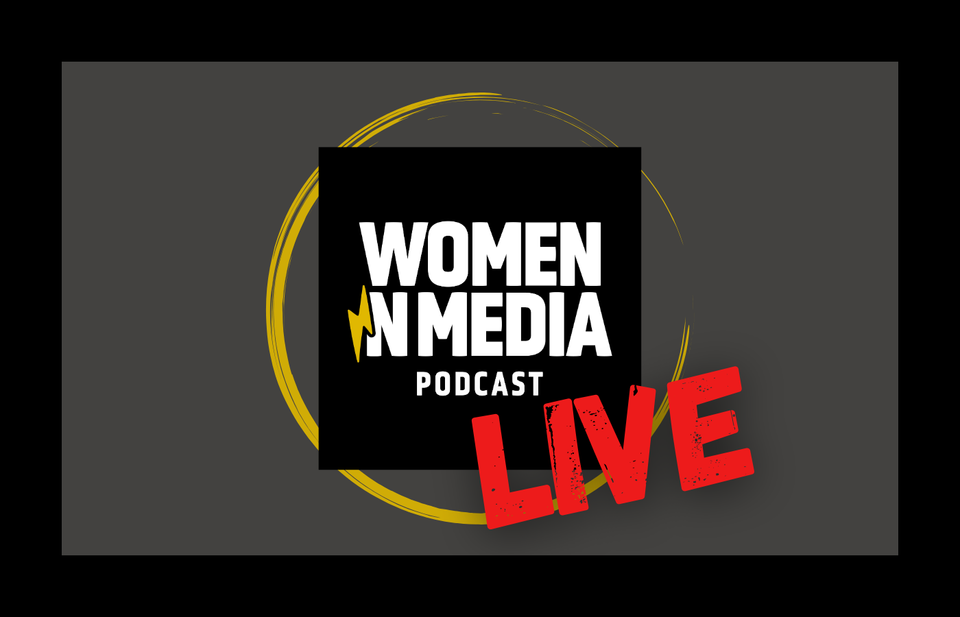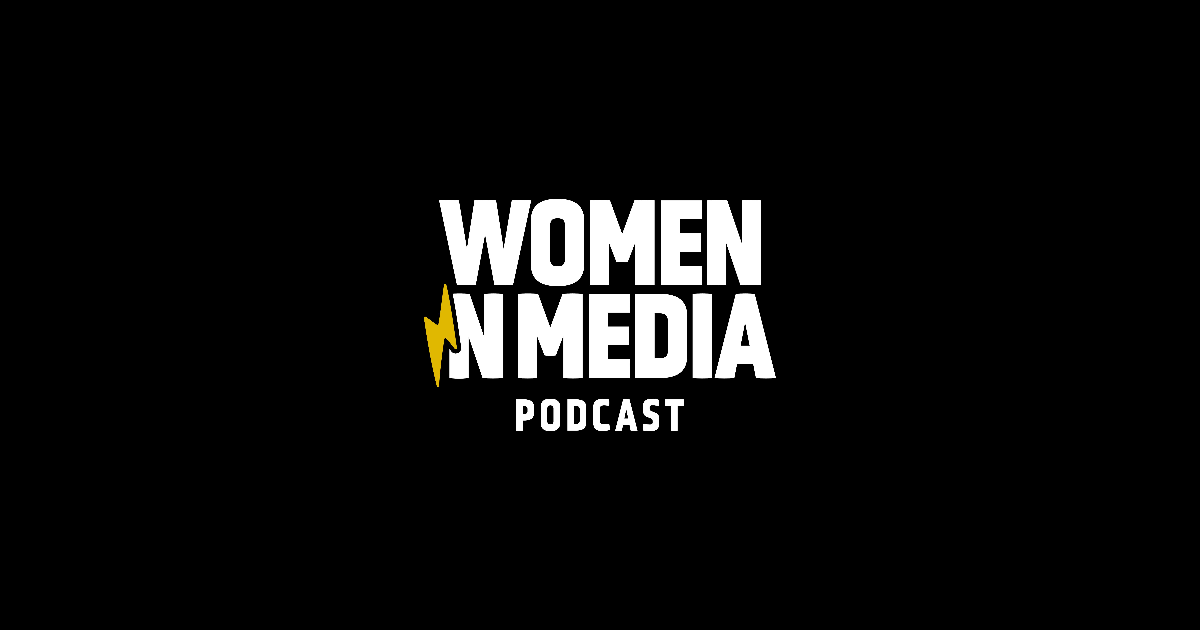Write Up! Live Podcast Recording of Women in Media at Lost Evenings Toronto

My partner, The Other, and I work in theater. So when we go on vacation we like to focus on trips that don’t necessarily equate to going to “work” on our time off. That is, there is a notable exception of concerts. I’m always happy to take a trip and get away from reality, meet new friends, and reconnect with old friends. Even better is when I get to find new music along with it. That’s right, we took a trip to a music festival. This one is Lost Evenings and I’m thrilled to say that I was able to attend a live podcast recording because of the festival.
First, what the heck is Lost Evenings? It is a musical festival headlined by Frank Turner, a British folk punk artist whose music sits at the crossroads of my partner and my musical tastes. The Other sits more punk, and I sit so folk I’m currently learning how to play the banjo. This festival moves around the world, and is four nights totaling over 20 artists across open mics, supporting acts, and the headliners of Frank Turner and The Sleeping Souls. I go for the great music, but I stay for the amazing community of music lovers from around the world.
One of the things that makes this festival unique are the panels coordinated by The Ally Coalition. Everything gets approved by the main team of Frank Turner and the company of people who run this festival. However, I see the panels are always a mix of what the crowd wants and the community needs. I regret not going to more last year in Anaheim but it was our first Lost Evenings and I didn’t quite “get it” yet*. There are workshop panels, Frank Turner panels, as well as panels about the industry.
This year I had the joy of attending a live podcast recording by way of one of these panels. That’s right, readers, I finally made it to a live podcast by way of a music festival. After a three-hour round trip back to the American side of the Niagara River for breakfast with my family, we managed to get back to the venue just in time for the panel to start. Or so I thought. Toronto traffic? You don’t want to experience it, especially with a highway closed. We weren’t the only ones fighting a commute to get to there. So it started a little late, but then we were off to the races.
Titled Women in Media x Women in Music, this panel-turned-podcast episode sits in the Women in Media feed and is moderated by Sarah Burke, host of the podcast. Panelists include JJ Wilde, one of the biggest female artists to come out of Canada, Hannah Rose Platt, an artist from the UK, Cristina Fernandes from Listen Harder, a music PR and publicity firm, and finally Tre Stead, Frank Turner’s longtime tour manager.
I want to say I’m not going to be commenting much on the venue. The podcast recording taking place in the hallway of a casino was a little uncomfortable for the sake of my back, but the content of the panel itself more than made up for it. This mix of panelists and the conversation they had made my heart sing.
In my day job, I’m a step away from the lives of these women. Our industries are more like siblings than cousins, and the same can be said for the podcasting industry. Being a woman in the music industry is a subsection of being a woman in the entertainment industry. It's not easy. Women are seen as commodities that depreciate rapidly after the age of 35 - no matter what they are doing. They are never good enough, and often locked out of specific roles because men won’t let them in. The careers of these women are long, and each reflects a different facet of being in this industry.
The decision to place not only artists, but PR and management professionals on the panel sticks out to me not only to highlight what the music industry consists of on a technical level but also an important reminder for everyone. While there are so many ways someone can be involved in the industry, it is important to note that women are severely underrepresented in the “behind the scenes” aspects of the. As an example: Across the spectrum of audio engineering alone, the number of female engineers and producers is incredibly small. In the music industry in the US, the number sits at 5% or under for the decade 2012-2022. The number creeps up as we approach 2024 across a few different publications, but it is still a specific position where women are few and far between.
This "lack of" was a segment of conversation in this panel but by far not the only one. This wasn't a conversation about the hardships, it was about the beauty of diverse talent in industry.
Once we got started the conversation flowed beautifully from topic to topic, where ] Sarah Burke laid out a fantastic structure from early career horrors and wins to the superpowers these panelists bring to the table as women. From Cristina Fernandes being harassed for the timbre of her voice, to Tre Stead using her powers of care and empathy to help an artist stay out of rehab - the energy was one of resilience, hope, joy for their craft, and a dedication to the future.
A dedication to the future was my favorite part about these panelists. We can listen to women having conversations about their experiences, and how women helping women tends to be the way that strides are made. We all know that it doesn't help if conversations and listening are the only things that happen. There also needs to be action.
What changes the world is not just when Hannah Rose Platt writes about women's struggles, but by getting her female students to come out a little more. What changes the world is JJ Wilde standing up for herself as her own manager, so the men she's talking to take more women seriously. What changes in the world is a listener taking the stories and reconsidering their behavior. Not just how they interact with women as people who take in media, but how they interact with people in their own lives.
This panel was all white women from developed nations. It was acknowledged, and part of the next steps isn’t just helping women by giving them space to be and have these jobs and conversations, but by everyone on the metaphorical top reaching out from their points of privilege and giving the marginalized others the space they deserve.
This needs to happen everywhere. In music, theater, television, movies, every trade imaginable, and in podcasting. If you’re reading this as a podcaster, head over to Sounds Profitable and read this article from Tom Webster.
Thanks to the connectivity of the world through social media and extended communities, women have been able to carve out corners of the world for themselves. To lift themselves, but also to lay themselves out for the misogyny we all know is rampant. It’s a hard world we live in, but I’m so glad to have seen these women reaching out to make it better in their ways. I have been thinking of it ever since. It gave me a newfound sense of resilience in what I do both here as a critical listener but also as a person in the theater industry itself. I am inspired to do better and be better, and that means more than I can quanify.
Listen to the full episode and follow Women in Media below. Be sure to check out the show notes for this one!

*An article about what this community means through Song - “getting it”
If you really like what I do, consider sending me a tip!


Comments ()